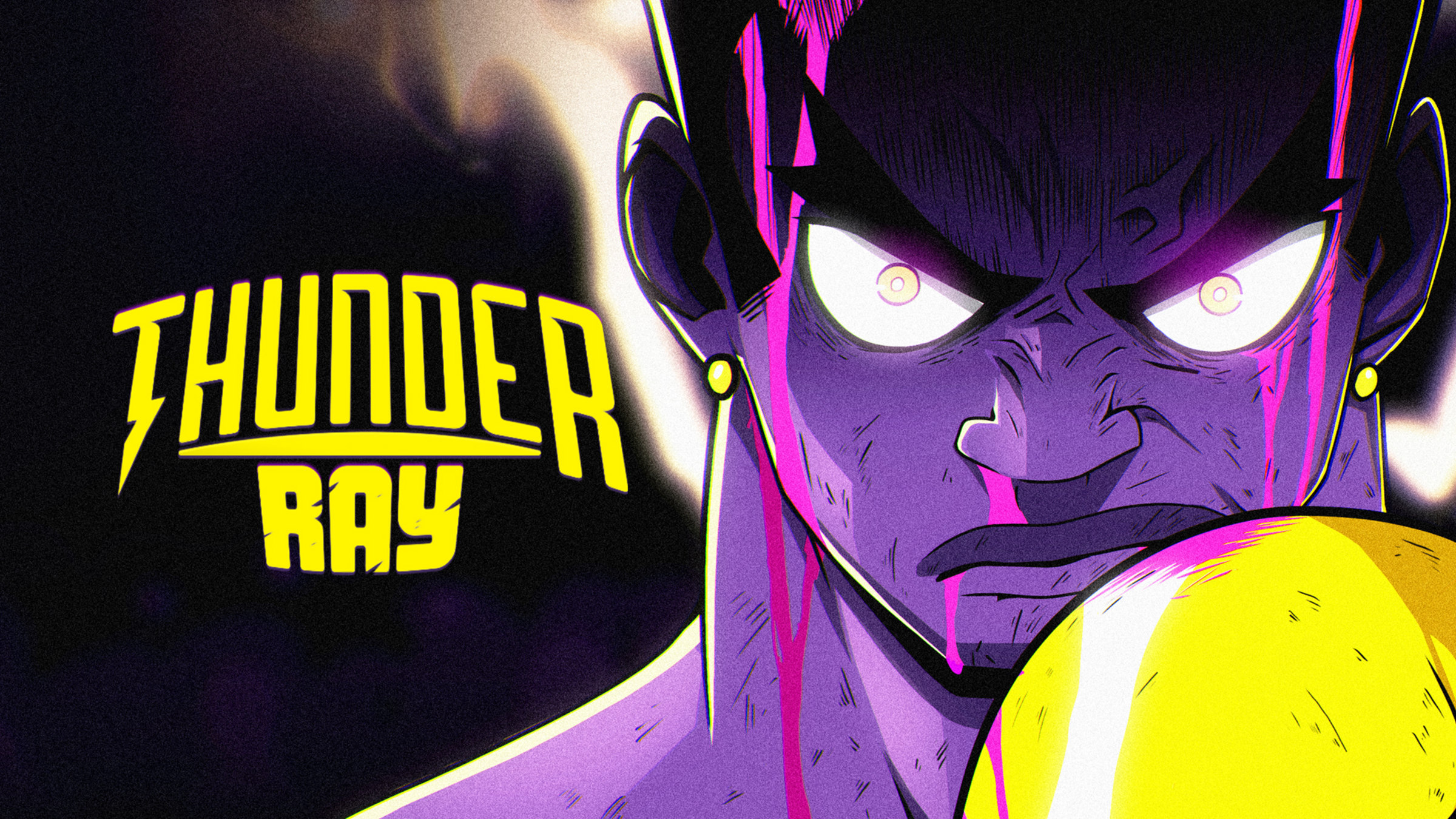Thunder Ray is the sort of video game that comes out of left field and ends up being one of the nicest surprises of the year. The team at Purple Tree have created the almost perfect spiritual successor to Punch Out. Well, more like a follow to Power Punch 2, but that’s a whole nother can of worms. What we do have is a gorgeous arcade boxing game that’s as fun as it is pretty.
The game is structured just like Punch-Out, with a wild cast of characters that help give the game its own identity. You play as Thunder Ray, coming off the heels of his victory as the greatest boxer on the planet. During his celebration and wanting to find new challengers to test him, Thunder Ray is stolen away by and alien and thrown into an Arena situation (the really bad 80’s film) and pitted against the greatest fighters in the galaxy.
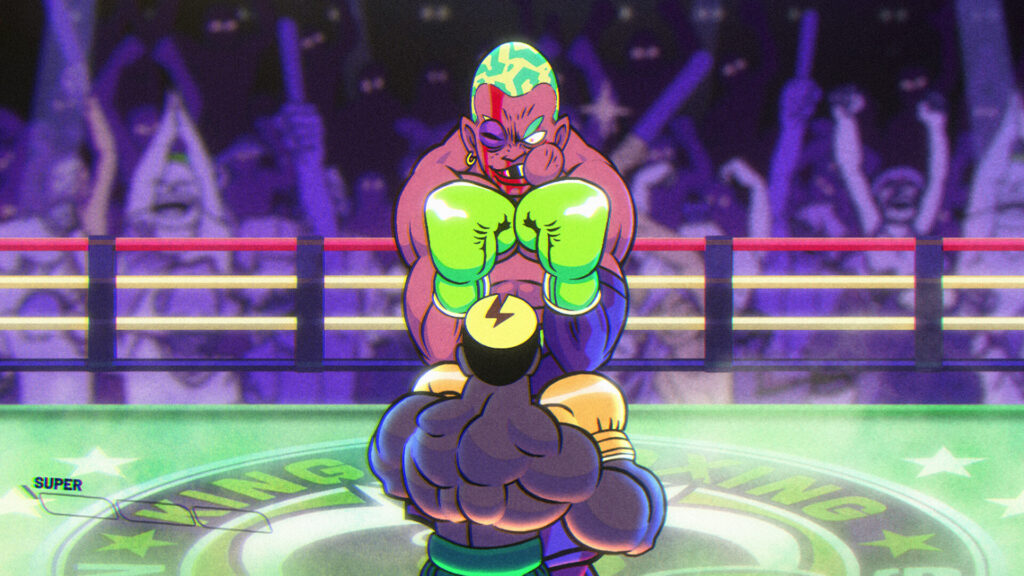
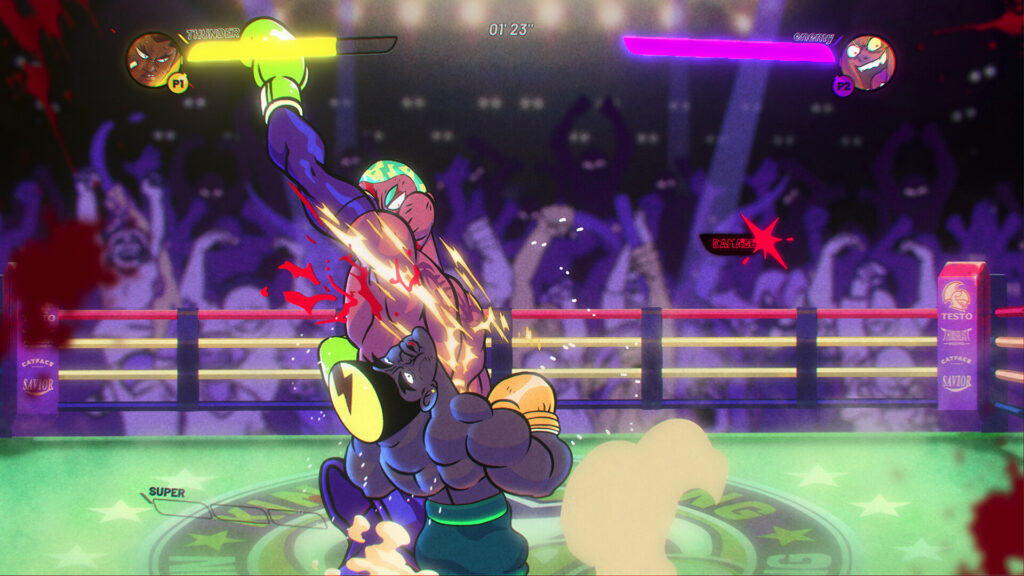
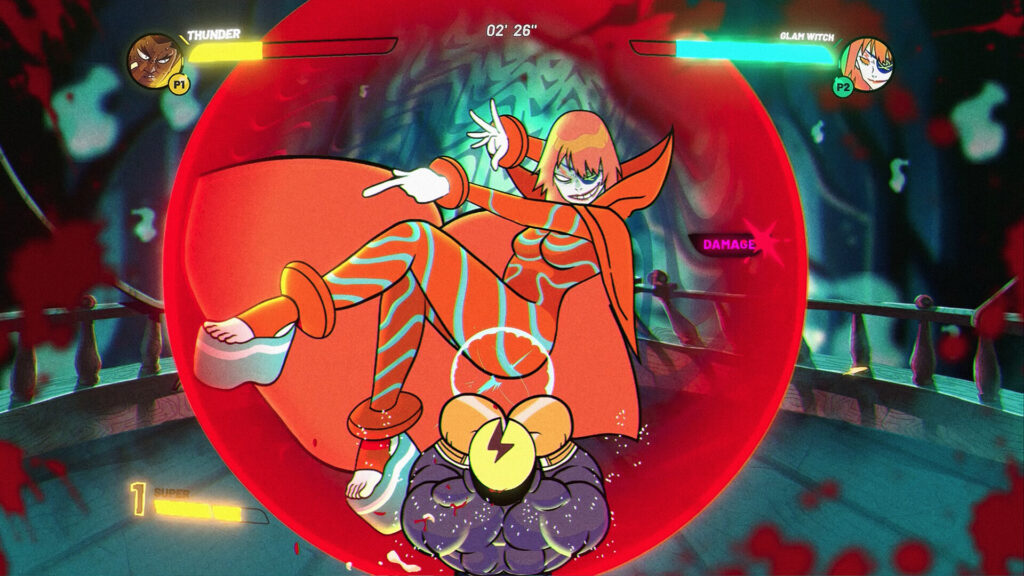
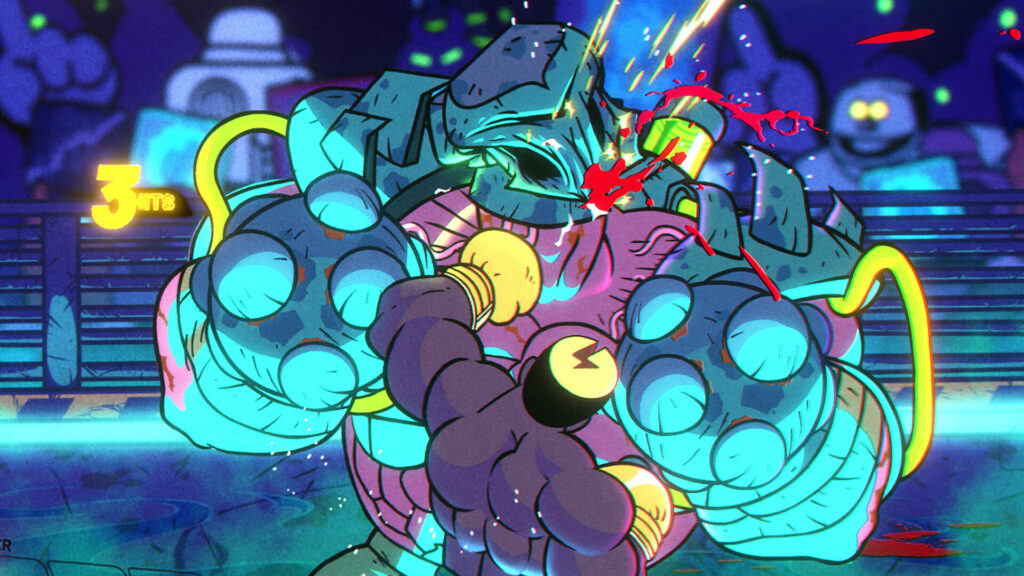
It’s a simple setup that allows for a lot of fun. Gameplay is fast and frenetic, and the punches feel good to land with nice impact. The twist is the implemented power system that can add extra power to a thrown punch. The controllers face buttons control your punches (jabs and body blows) and you can hold a trigger to charge a powered-up strike that does more damage but leaves you open for attack. As you fight your super meter increases and can unload a special attack that does a boatload of damage. This super meter upgrades over the course of several fights works like a super meter in a Marvel vs Capcom game.
Like with Punch-Out, each character that you face has their own fighting style and tells that you have to figure out in order to beat them. You need to learn how to evade punches and attacks and also learn how to take a punch at times as blocking might be the only way to not take serious damage. Each enemy attack has a way to evade it and figuring them out is part of the fun. Although there don’t seem to be any counters like in other titles. This means that the challenge is essentially fixed until you figure each out, but doing so is actually a good bit of fun.
Unlike Punch-Out, you don’t simply have to fight and fight and fight an opponent until you learn everything about them. Each fight gives you three difficulty options to enter the ring with. The easy mode has them attacking slower and with less damage, allowing you to figure out the correct strategy for that opponent. Ramp up the difficulty and you’ll get a serious challenge, even when you think you’ve got them pegged. It’s a fun system that lets you learn at a better pace than other games of this genre.
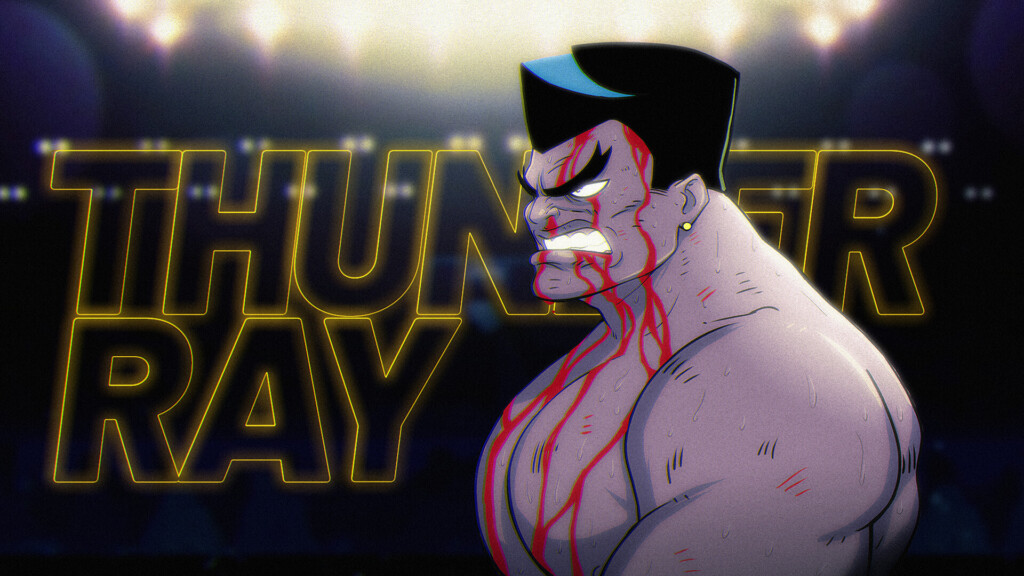
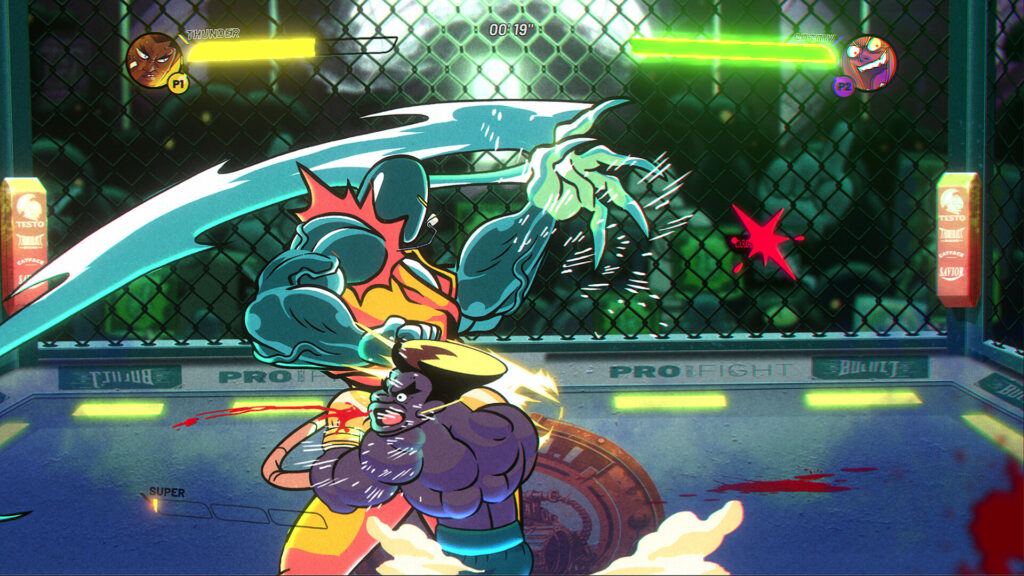
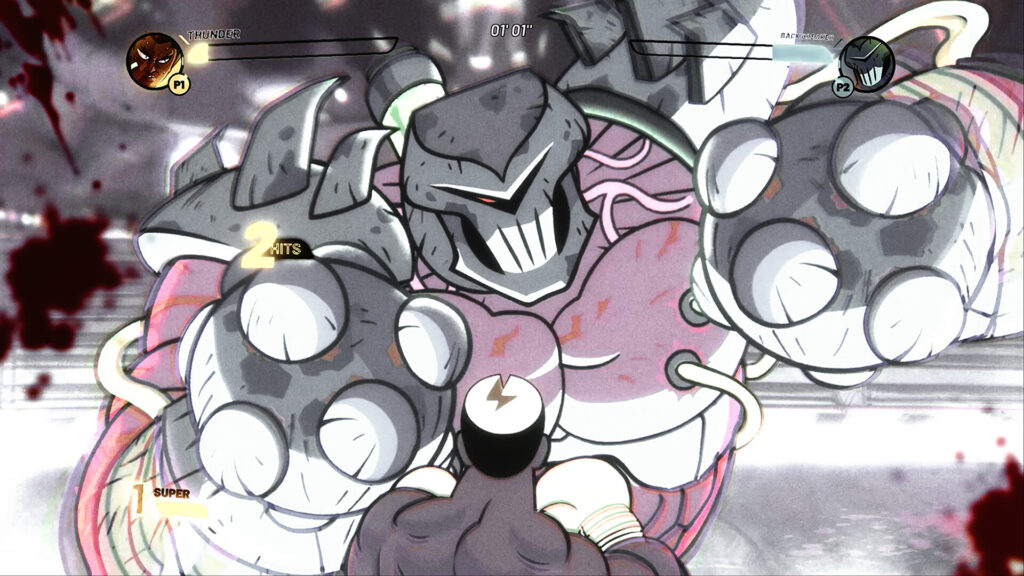
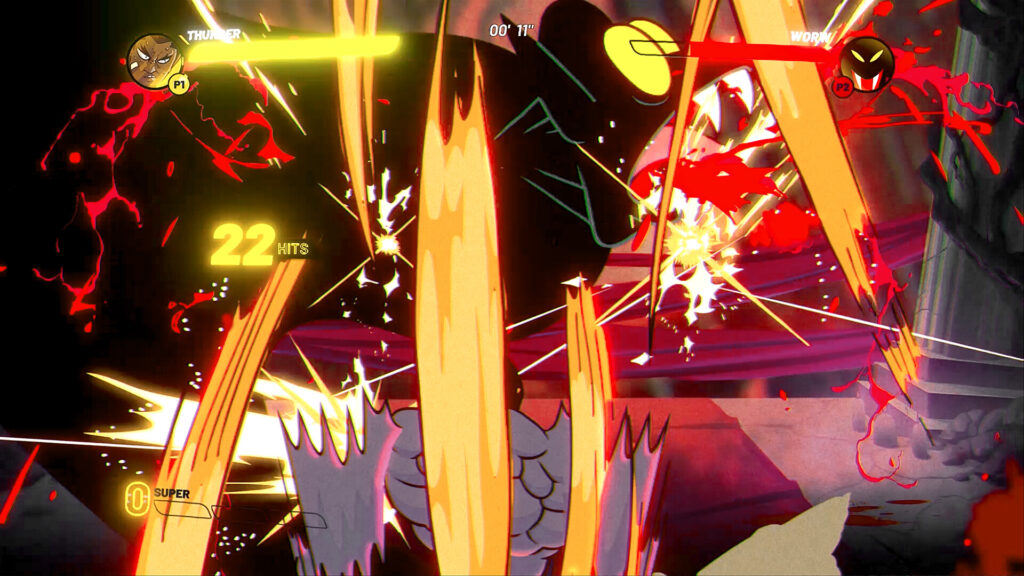
What isn’t so great is the lack of options in terms of gameplay and control. There is also a distinct lack of a story that gives you a reason to be fighting each opponent. This is a shame because I really love the character designs and wanted more backstory and some sort of interaction from them, especially when the art is so fantastic. But the biggest failure of Thunder Ray is the length of the game itself. There aren’t a ton of fighters to take on, and with the game’s lack of modes and options, there really isn’t a huge reason to come back to this one over and over again.
Thunder Ray is a true gem in the visual department, and a much faster game than any other Punch-Out inspired titles that have come before. Its gameplay is simple while offering up a nice challenge, especially on the harder difficulties, and that end boss is as annoying as Mike Tyson/Mr. Dream was in the days of the NES. Still, I think many people are going to find that Thunder Ray lacks a lot of depth as it’s missing a counter system that they might be wanting/expecting. But if you come into this one knowing it’s a fun spiritual successor to Punch-Out and Power Punch 2, then you’ll almost certainly have a good time.
Thunder Ray is a fantastic and drop-dead gorgeous tribute to the Punch-Out games of old.
Final Score:

